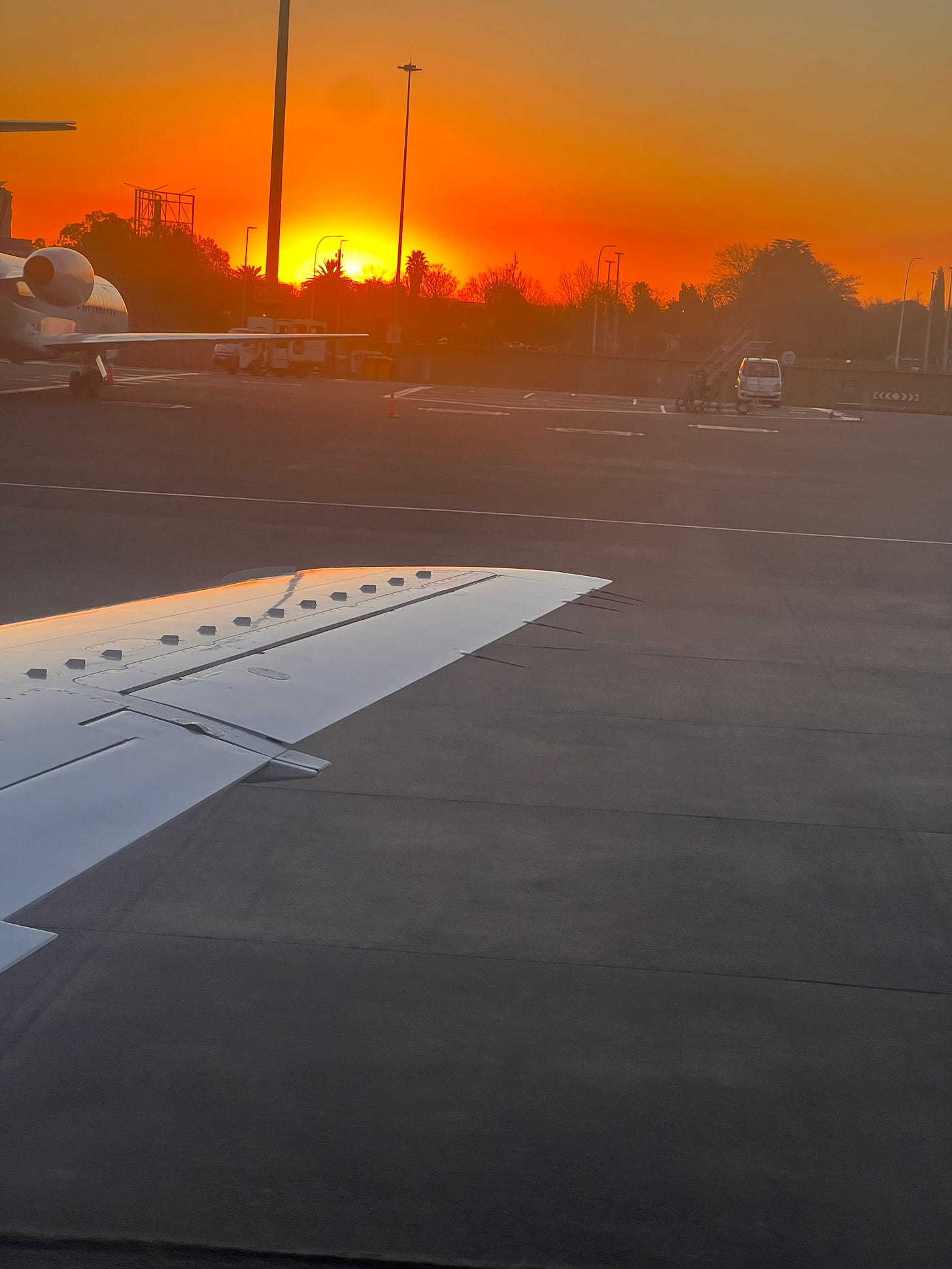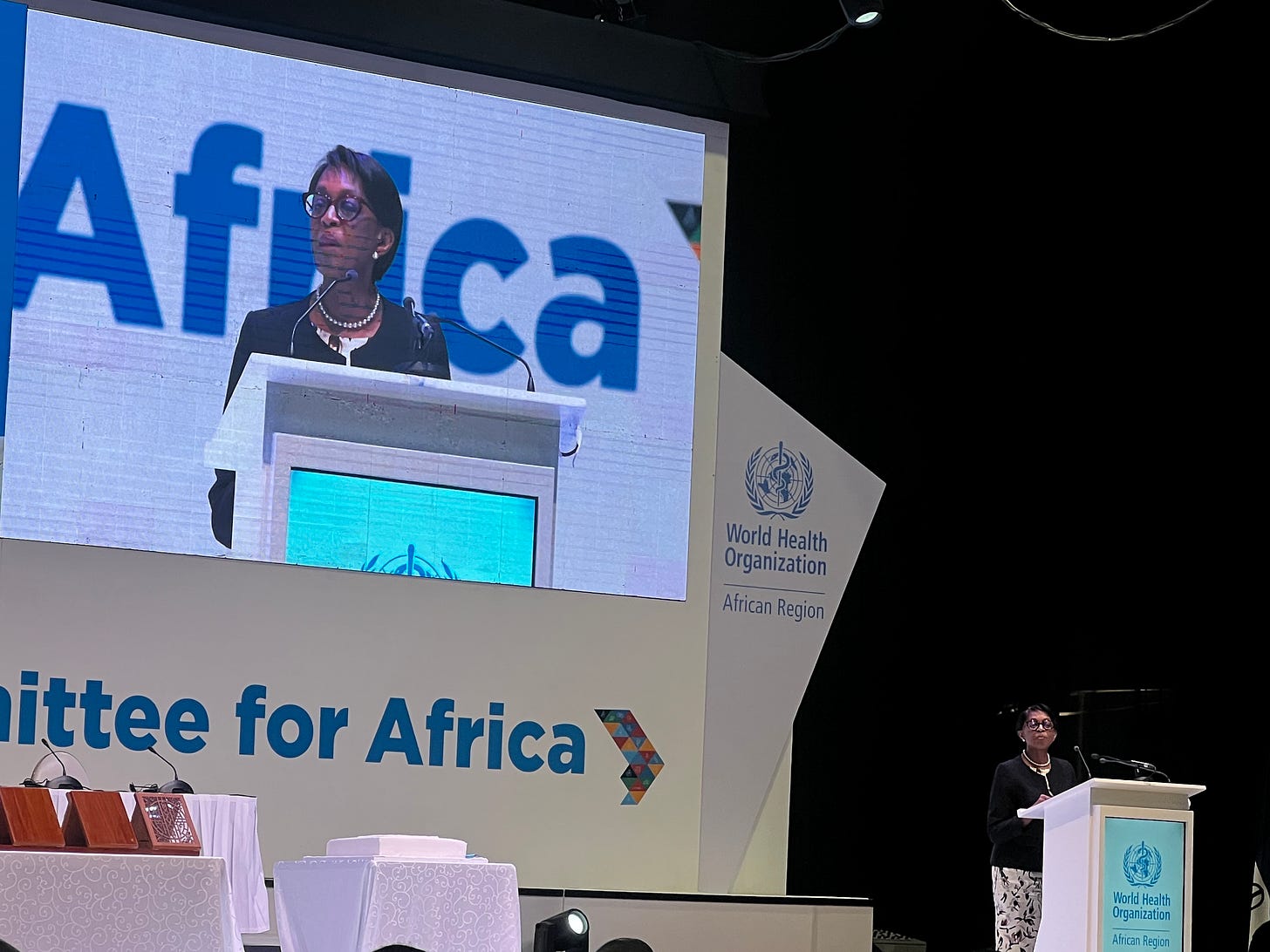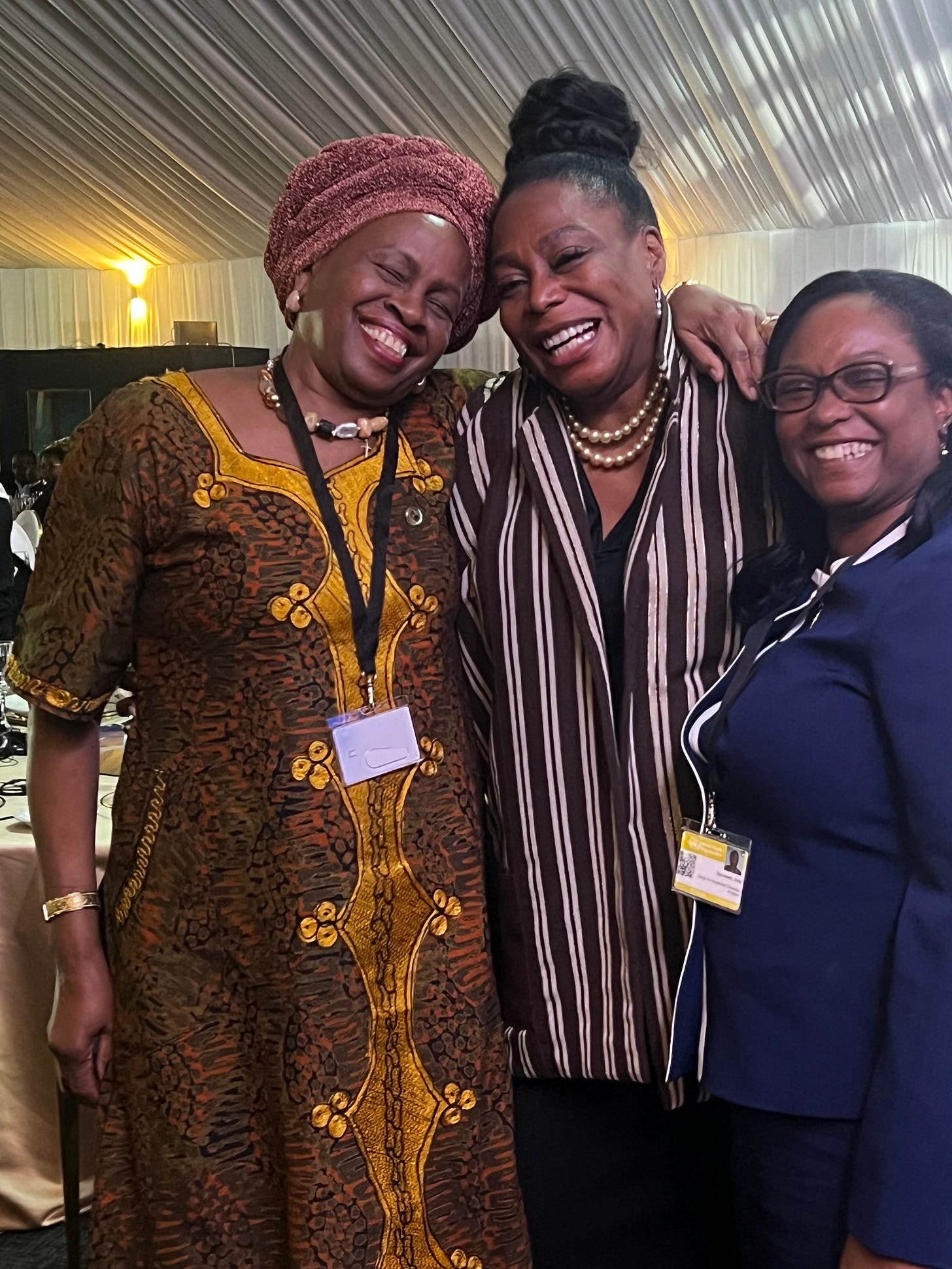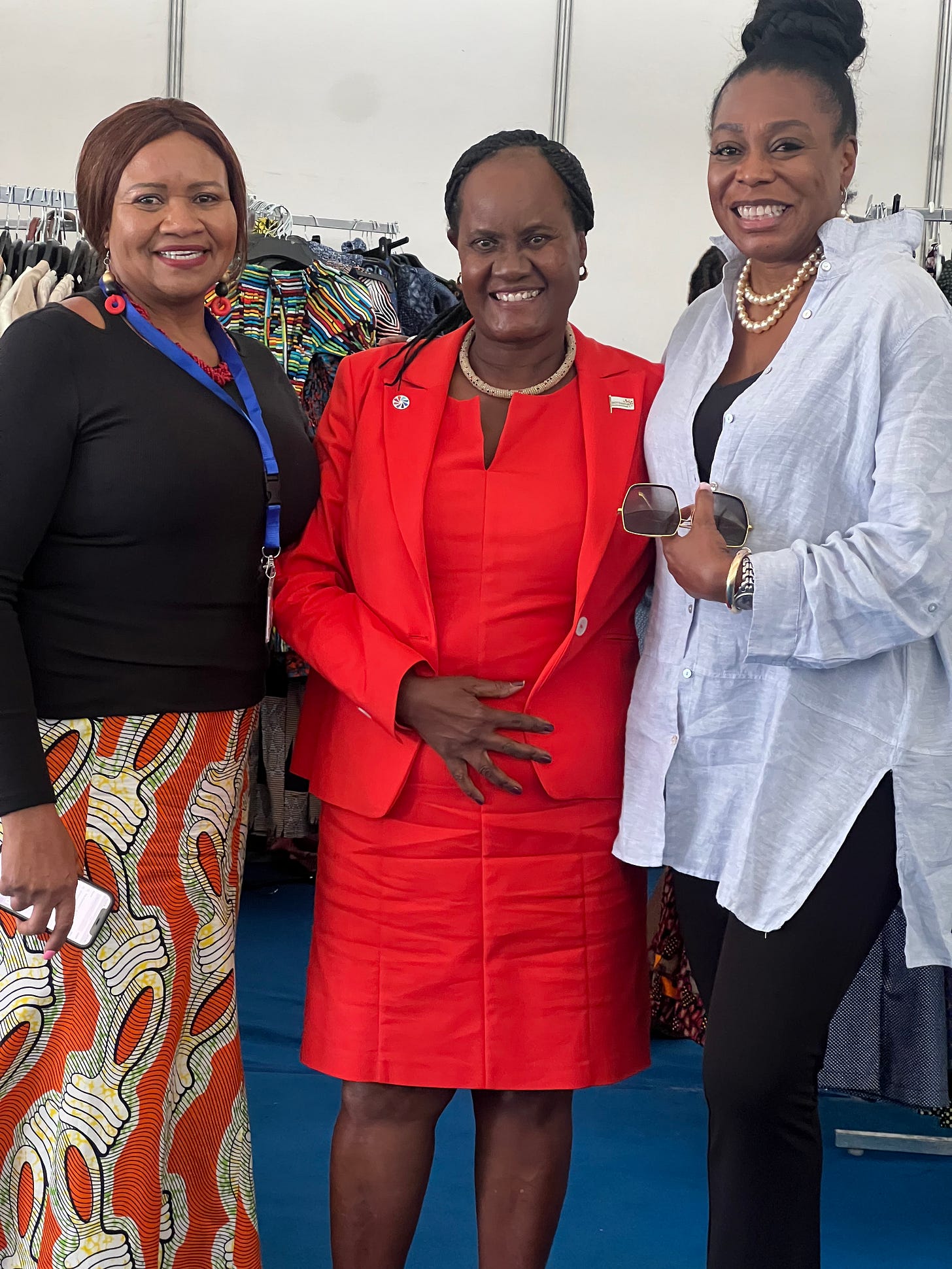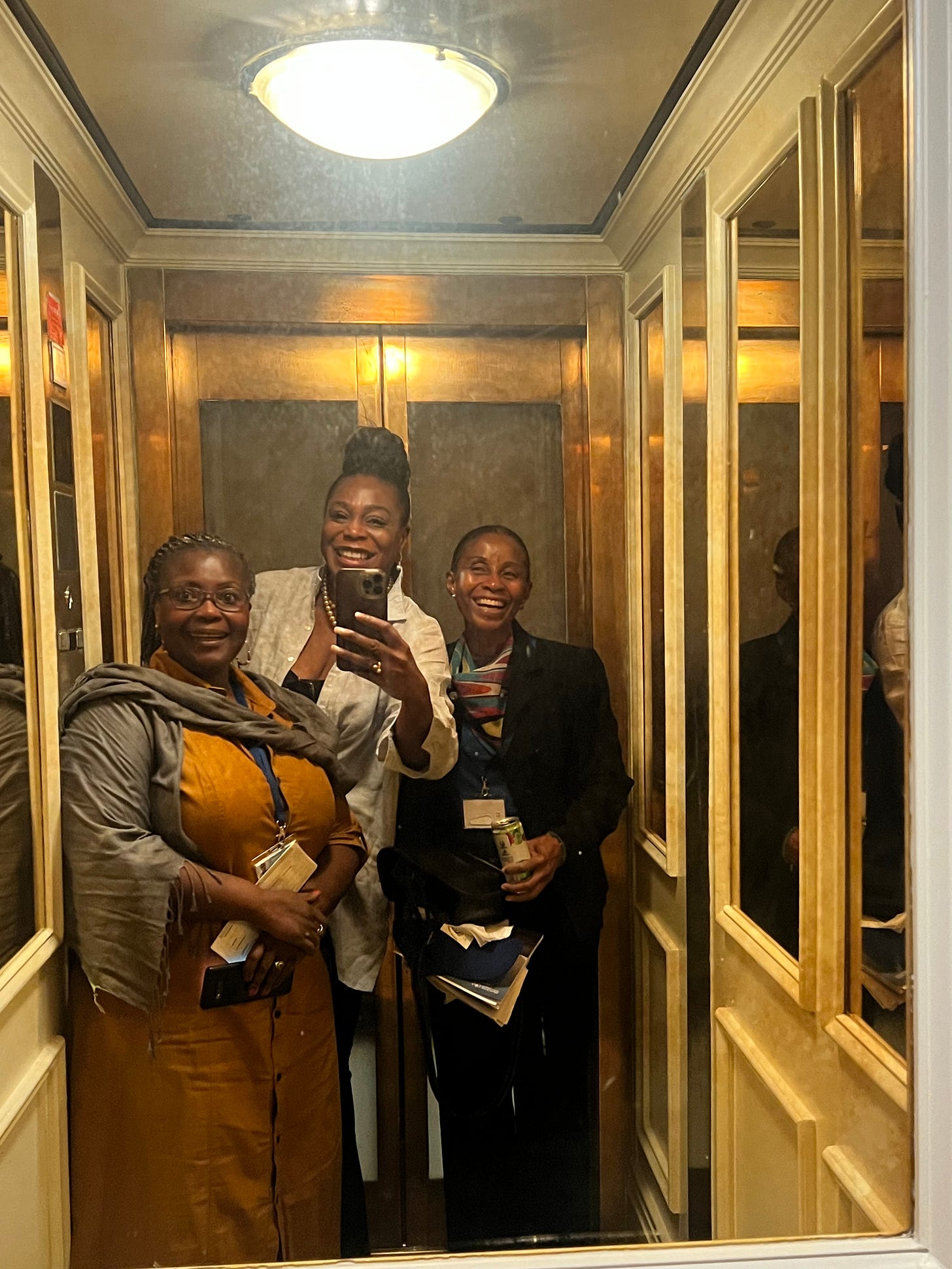Beyond Borders: African Pathways to Pandemic Preparedness.
This past week was a whirlwind! Amidst the bustling symphony of global dialogues and health engagements, the pressing nature of health security has never been more palpable. Fresh from my departure from India carrying insights from the G20 Health Ministerial, I spoke at the Association of South East Asian Nations (ASEAN) High Level Meeting in Jakarta, graciously hosted by the Indonesian Government in their tenure as the ASEAN Presidency.
ASEAN High Level Meeting
In presenting in the session titled "COVID-19 Effects, Strategy for Recovery, Experience and Lesson Learned for the Preparations for Transition from Emergency Response to Long-term COVID-19 Disease Management", I underscored that many ASEAN countries, with their history of navigating MERS and SARS, have honed their preventative public health approaches, providing a wealth of insights for mutual learning.
My participation allowed me to shed light on Africa's COVID-19 response, emphasizing the transition from immediate crisis management to enduring disease control and enhancing health system robustness. Those who have been engaged over the past 3 years will recognize my longstanding call for South–South collaboration to bolster global health security. Therefore, this meeting was a dual opportunity for me: to articulate the African perspective and to gain insights from ASEAN's journey.
Africa Health Ministers Meeting
Then it was back home to spend the next month in my beloved Africa. I traveled to Gaborone, Botswana, to participate in the 73rd WHO Regional Committee for Africa Meeting where I coordinated a pivotal session on medical countermeasures and Africa’s global health security, focused on advancing the African Medicines Agency (AMA) treaty. Ministers of Health from several Africa countries including Egypt, Ghana, Rwanda, Sierra Leone, Congo participated actively as we all recognize the need for our perspectives to be front and center as the world prepares to meet at the UN General Assembly.
The title of the session, "Strengthening Africa’s regulatory capacity for the 'Africa We Want' through the operationalization of the African Medicines Agency (AMA)", particularly struck a chord. The phrase "Africa We Want" serves as a poignant reminder, echoing my unwavering commitment to and clarion call for inclusivity, equity, and justice.
Whichever hat I wear, and in whatever part of the world I travel to for the work that I do, every battle I've engaged in for equity, for women and girls, for the vulnerable, has always been underpinned by a foundational truth: there cannot be a world that thrives when any part of it is left behind. And for me in many ways, charity does begin at home.
So, what is this Africa we envision? I would say that for me, in its simplest distillation, it is an Africa where equity isn’t a perpetual struggle but an ingrained reality.
Indeed, the African Medicines Agency Treaty should be a beacon of hope in our shared vision. Conceptualized by WHO in 2014 and adopted with fervor in 2019 by the African Union Heads of State, it signifies Africa's stride towards a harmonized pharmaceutical realm. However, shadows linger with 20 nations still hesitant to embrace this new dawn, a hesitancy rooted in our historically fragmented pharmaceutical regulation.
To anyone closely examining the significance of AMA, it's evident that its essence revolves around medical countermeasures, marking a critical cornerstone in Africa's global health security.
Drawing from my tenure as Chair of the African Vaccine Delivery Alliance (AVDA), I've been a firsthand witness to the challenges posed by a lack of regulatory cohesion, especially in the context of COVID-19. Even before the pandemic, the compelling reasons for an AMA treaty were evident both for health and economic reasons. A functional AMA treaty ensures that quality medicines are available across Africa, effectively eliminating substandard and counterfeit drugs that undermine both public health and the pharmaceutical industry. The advent of COVID-19 accentuated the urgency for a harmonised regulatory agency. The pandemic emphasized the need for a coordinated approach to approve new medical interventions for use across the continent, rather than navigating the labyrinthine processes of individual country approvals. My experiences in providing advice on approval status for countermeasures, especially during COVID including Nigeria’s NAFDAC further underline the broader impediments facing the continent in this area. To truly insulate ourselves from health threats and ensure swift and unified responses to future crises, a consolidated regulatory body is indispensable.
Indeed, the AMA stands as a sentinel in our collective vision. It embodies the very spirit of reform we so desperately need to reshape the pharmaceutical landscape of Africa. Its full operationalization isn’t just a milestone; it's a linchpin in realizing both the Universal Health Coverage (UHC) agenda and Agenda 2063's vision of ‘The Africa We Want’.
The inclusivity of the Gaborone assembly, with countries such as Egypt (from the EMRO region) actively partaking, resonates deeply with my long-held beliefs. Equity, as I've consistently championed, is fundamentally rooted in inclusion. Beyond the immediate dialogue surrounding the AMA treaty, the dynamics of this assembly mirror a larger, interconnected play of international cooperation.
Pandemic Treaty
At this pivotal moment, all our energies must focus on the Negotiating Body (INB) process which is critical in progressing towards a Pandemic Treaty—a significant stride that underscores the importance of a cohesive response to global health threats. African Ministers engaged extensively on the INB process during the 73rd Regional Committee and it was a privilege to be involved in discussions taking us towards a common position for our Continental global health security, preparedness, prevention and response. In this interconnected landscape, every collective action, every negotiation, and every shared vision on global platforms brings us a step closer to a more resilient and harmonious future.
It must be said that for a treaty of its significance, its journey has been remarkable. Few African Union (AU) treaties have garnered such rapid support, a testament to its inherent importance. The COVID-19 pandemic, if nothing else, amplified the urgent necessity for a consolidated approach to health regulations.
The dynamics between AMA and national regulatory authorities, appointment protocols for AMA’s executive leadership, and the inclusion of diverse voices, especially patients, all need careful calibration. Yet, I'm hopeful, especially with the Rwandan government’s commitment as showcased in their provision of a fully-equipped building to host the AMA. This gesture, alongside the dedication of the AU task team and the Conference of State Parties, keeps the momentum alive.
An AMA that doesn’t operate in isolation but collaborates with national regulators and regional economic communities is the vision. By building upon existing capacities and sharing information seamlessly, the AMA can focus on areas with limited capabilities, such as traditional medicine guidance and emergency response.
Kicking off the event, Dr. Matshidiso Moeti, the Africa Director of WHO, adeptly framed the discussion around Africa's medical countermeasures. Dr. Moeti articulated that the AMA represents Africa's unified response to medical challenges, acting as a singular regulatory body. Through AMA, she emphasized, African nations will gain prompt access to essential medical countermeasures during health crises, ensure preparedness and beyond such emergencies, the agency will ensure the provision of safe, efficacious interventions for the populace.
I wholeheartedly echo her perspective, and want to again congratulate her on receiving the Presidential Order of Meritorious Service from the President of the Republic of Botswana.
As global attention sharpens on pandemic negotiations, preparedness, and response – especially in anticipation of the High-Level Meeting at UNGA and the ongoing INB process and IHR review – the role of AMA in weaving these elements together and fostering regulatory unity across the continent becomes paramount for enhancing our health security and overall well-being.
As I led the high level session, I started off by honouring an elder brother, Dr. Michel Sidibe, whose relentless work as AU Special Envoy for AMA is what has brought us thus far and then I found myself reflecting on Nigeria. As one of the continent's leading nations, our absence from this harmonized vision is glaring. It’s my ardent hope that we, along with other hesitant nations, recognize the importance of the AMA Treaty, not merely as a symbol of unity but as an actionable tool for healthcare transformation. Because, at its core, the AMA is about an Africa where quality healthcare isn't a privilege but a shared, inalienable right. That is an Africa I want!
Throughout the dialogue, delegates across nations consistently highlighted the AMA's potential to strengthen Africa's regional economy and enhance resilience. A prevalent theme was the drive for African solutions to address distinctly African challenges: from the alarming prevalence of counterfeit medicines—Africa bears the weight of half the world's counterfeit drugs—to the continent's minimal contribution to vaccine manufacturing, a mere 3%.
Unity is pivotal to our success. The concerns raised by the representative from Côte d’Ivoire about divisions rooted in regional languages underline this truth. As Africans we must remember our shared history — not only were our kin bought and sold by white slave traders, but also by our own, for fleeting gains. Now more than ever before we must rise above such shortsightedness and remain immune to fleeting allurements of personal gain. For not every shimmer is silver, especially when the enduring future of our Continent and successive generations hangs in the balance.
On an ancillary note, after hearing remarks warning against potential divisions in Africa due to colonial languages, notably English and French, I felt a pang of longing for our discussions to be conducted in our native tongues. Of course, I couldn't resist weaving in one of my favourite Yoruba adages that emphasises the importance of inclusivity and the vital need for Africa to have an equal voice at global discussions affecting our continent. Because, "A kì í fá orí lẹ́hìn olórí": One does not shave a head without its owner present.
At the core of our advocacy for a thriving Africa is the imperative of robust leadership. Achieving AMA's objectives hinges on the selection of a leader who can unite and earn the trust of all member nations and stakeholders—a sentiment eloquently captured by the Minister of Health for Sierra Leone.
Drawing parallels, the Executive Director from the European Medicines Agency emphasized the foundational role of trust amongst patients, governments, and agencies. The succinct mantra, “perfect preparation will prevent poor performance”, serves as a poignant reminder of our shared mission.
Sisterhood
As a professional deeply rooted in the conviction that women are integral to progress at every decision-making echelon, I was profoundly heartened by the female presence during the regional committee. Dr. Matshidiso Moeti’s leadership as the Regional Director of WHO AFRO, made clearly evident that women were fully welcome at this Africa table! We were there not as mere tokens, but in clear leadership roles, supporting one another and exuding genuine sisterhood—from dancing at the opening event to our momemts supporting women entrepreneurs at the trade booth, the experience of women in leadership was a sheer delight. It was a canvas painted with natural, jubilant instances of women uplifting and championing one another.
Across continents, from Europe to Asia to Africa, the message stands resounding: health security for all hinges on unwavering political commitment. As we approach the High Level Meetings in September and continued negotiation of the INB process, I urge for heightened political resolve. Time is of the essence, and our challenges only grow. The call is for unified, global solidarity. It's imperative that the INB process and the PPPR framework be shaped democratically, reflecting the insights of every nation. It is imperative for our collective futures.



